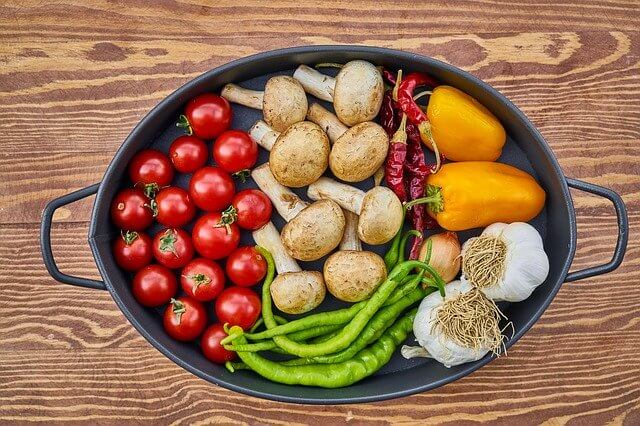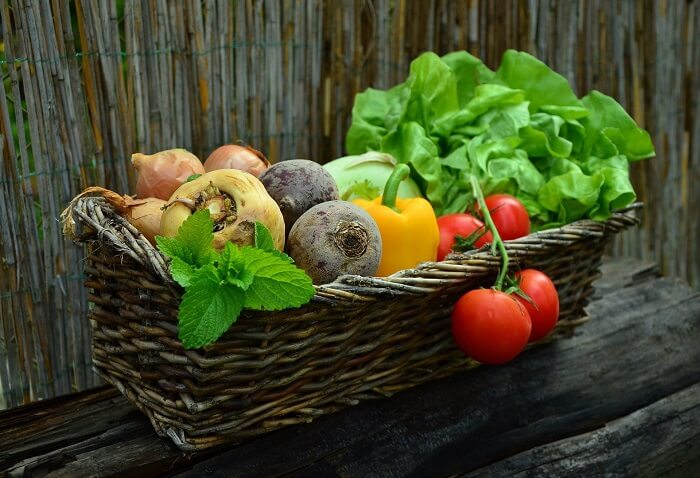Vegetables for health. An article about the benefits of vegetables for our health and their necessity for our health, their importance for our health.

The importance of vegetables in our daily diet is due to the fact that this group of foods has a host of beneficial properties for our health. We can talk, for example, about the large amount of water that vegetables have. This large amount of liquid will make it possible to eliminate toxins from our body much more quickly and effectively, as well as being hydrated. Eliminating toxins is important for our body; and is that many of the diseases, such as cancer, can develop by a high level of toxins in our body.
Vegetables are a very important source of fiber for our body. Fiber is essential for our digestive system to function properly. Thus, thanks to this fiber we can regulate the function of our intestine, and among others, to avoid or correct constipation, a problem that suffers a very high percentage of the current population. Also, in addition to relieving constipation, vegetables are ideal to regulate problems such as cholesterol, prevent diabetes, gallstones, hemorrhoids, diverticula or even the feared colon cancer.
In obesity issues, people who are trying to lose weight will find a strong ally in vegetables; and is that in addition to regulating your bowel, we are facing foods with a very low caloric intake. Thus, including vegetables in a diet to lose weight can be an excellent solution.
It is necessary to talk about the vitamin contribution of vegetables; and is that thanks to the consumption of chickpeas, beans or lentils, among others, we can significantly increase vitamin C and A in our body. It is also interesting to know that vegetables are a great natural source of phosphate, necessary for the proper functioning of our body. Being a food rich in antioxidants, vegetables are important when fighting cardiovascular diseases, degeneration of the nervous system or even cancer. So, in addition, these antioxidants make our body age more slowly, trying to renew and take care of our cells constantly.
I feel its potential so great and containing so many properties that can benefit us positively in our health, nutritionists say that it is completely necessary to introduce vegetables into our diet and eat several servings a week. While it is true that vegetables are good for our health, the truth is that we must bear in mind that it is not the same to take natural foods as packaged foods. Thus, all the properties listed so far could be significantly lower in processed and packaged foods.

Eating raw vegetables can provide great benefits in some diseases.
For this, while doing diet therapy, some days are reserved as raw vegetable days. Thus, it is very beneficial to give the patient plenty of vitamins. For example, in the treatment of obesity, plenty of fresh vegetables such as tomatoes, green salad and cucumber should be given. This will both fill the patient’s stomach and weaken with these low-calorie foods that are low in salt and water. In cases of chronic constipation, vegetable and salad days, which are rich in cellulose, are very beneficial. However, it should be kept in mind that excessive cellulose will be harmful to people with intestinal stenosis. On green vegetable days in diabetics, there is no carbohydrate in the patient. Or a regime consisting of very few vegetables is arranged. Green salad, cucumber, tomato, raw spinach, cauliflower, green beans, chicory, cabbage, artichoke can be given to diabetic patients by cooking them. Carbohydrate-rich vegetables such as lentils, beans, chickpeas, peas, broad beans, carrots, and yams should not be given to these patients.
Iron-rich vegetables are beneficial in some blood diseases. In diseases such as scurvy due to vitamin deficiency, it is appropriate to give plenty of fresh, green vegetables, tomatoes, green salads, cabbage, spinach, turnips, potatoes, and vegetables with plenty of vitamin C such as pepper.
In cases of stomach ulcers, only vegetable soups and vegetable juices are given at first. Starting from the second and third weeks, leafy vegetables such as hibiscus, spinach, cabbage, and then carrots, fresh peas, cauliflower, zucchini, tomato pastes are boiled thoroughly and put on olive oil or unburned butter. It is appropriate for people with ulcers not to eat raw vegetables. In diarrhea, vegetables should not be given to the patient.